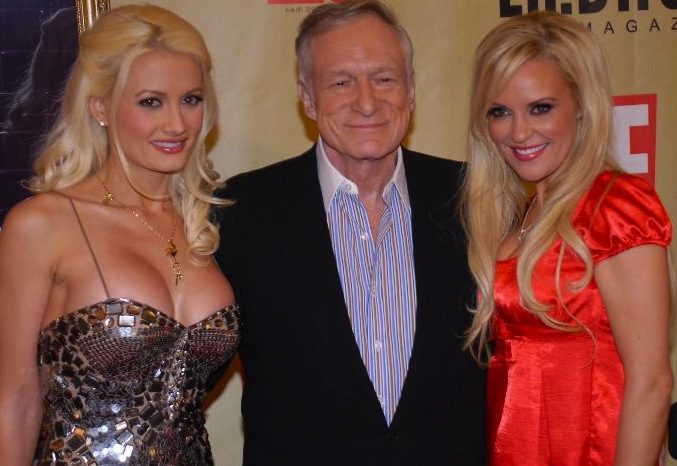Hugh Hefner, Who Outlived Style He Created, Dies at 91
By • September 28, 2017 0 865

Most of the young men who were the first readers, subscribers and customers for Hefner’s empire in fact used that very kidding but also serious excuse for picking up the magazine: “I read it for the interviews, or the short stories, or the advice or the political articles.” But, in truth, many of its readers did buy it for just that. The interviews were every bit as good as Rolling Stone. The fiction included stories by Joyce Carol Oates and a memorable story by Calder Wallingham. Dick Gregory, the civil rights activist who died recently, was partly launched as a comic in Playboy. The Playboy Club itself attracted Hollywood’s slick elite, including members of the Rat Pack. And there was Playboy After Hours on television.
Feminists including an outraged Gloria Steinem, who went under cover (and a little undercovered) as a Playboy Bunny, despised Hefner’s hedonist lifestyle; she found it demeaning to women and misogynistic and rightly so.
He was something of a contradiction. His Methodist upbringing, which he called tyrannical and puritanical, clashed with his literary bent (he majored in English and wrote a multi-part Playboy philosophy). His support of civil rights and free speech left their marks almost as much as the sexual revolution in which Hef and Playboy swam.
The interviews — they included President Jimmy Carter’s famous admission that “I’ve committed adultery in my heart many times — were in-depth, often tough and revealing.
The magazine, derided by some but embraced (often secretly) by others, was a major cultural and social part of the 1960s and 1970s, but collapsed somewhat due to mismanagement and, later, changing times and technology.
Hefner was married three times. After a stroke, he regrouped to continue to be the man he was, living mostly in his rotating bed at the mansion.
As Hefner aged, the style seemed more and more anachronistic; it distanced him from that same generation. In a sense, he outlived it (until now). Hefner had the resources to live his youth over and over again, Dorian Gray with a pipe. It was said, in a Fox News report, no less, that that he passed away surrounded by loved ones. That might have been quite a crowd.

